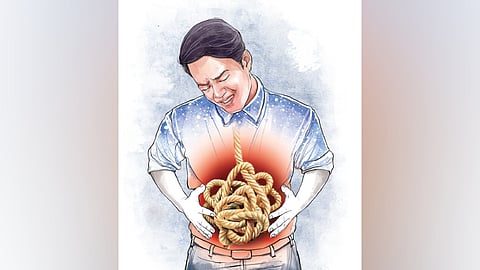

BENGALURU: As the mercury touches a high of 38.5 degrees Celsius, and Bengaluru grapples with heatwave conditions and an ongoing water shortage, private hospitals in the city are seeing a significant rise in typhoid and acute gastroenteritis cases.
“Typhoid is primarily waterborne, while acute gastroenteritis can be caused due to contaminated water, food-borne pathogens or person-to-person transmission,” highlight health experts.
Director of Internal Medicine at Fortis Hospital Dr Sheela Murali Chakravarthy said, “This significant increase in typhoid and acute gastroenteritis is likely due to water scarcity or contamination. Most common symptoms include fever, abdominal pain and diarrhoea. Nearly 100 patients have been treated in the past month, while earlier, the monthly average was two patients.”
People travelling to regions where the disease in prevalent are advised to take typhoid vaccination. Ensure you have access to clean and safe drinking water, maintain good hygiene, and refrain from having contaminated food to prevent infections, added Dr Sheela.
Consultant of Internal Medicine at Narayana Health City Dr Nidhin Mohan said the concerning surge in gastrointestinal cases is possibly due to viral and bacterial infections. The hospital is getting close to 20 cases of gastrointestinal infections weekly, which is at least 50% more when compared to December. “These issues could be traced back to contaminated water and undercooked non-vegetarian food, especially vulnerable during hotter weather,” he said, and added that at least two or three typhoid cases are also reported in a week.
Dr Mohan stressed that symptoms like dehydration and lethargy require prompt medical attention. “To reduce risks, people must ensure non-vegetarian meals are cooked thoroughly and prioritize the consumption of safe drinking water.”
However, while private hospitals are seeing a spike in cases, some government hospitals have not reported any notable surge.
The Bangalore Water Supply and Sewerage Board (BWSSB) has collaborated with the IISc to adopt an indigenous technology capable of zero bacterial treatment of waste water in just two weeks, said BWSSB chief Ram Prasath Manohar. “Increasing the use of treated water can greatly reduce the pressure on Cauvery water. This is a new milestone in the history of the board. It will help change the mindset of people in using treated water,” he said. Around 1,800 million litres per day of waste water is generated in the city. Of this, 1,200 MLD is treated through waste water management units of BWSSB. “Microorganisms present in treated water have the potential to affect health. To avoid this, a warning is given that this water should be only used for activities without human contact,” Manohar said.